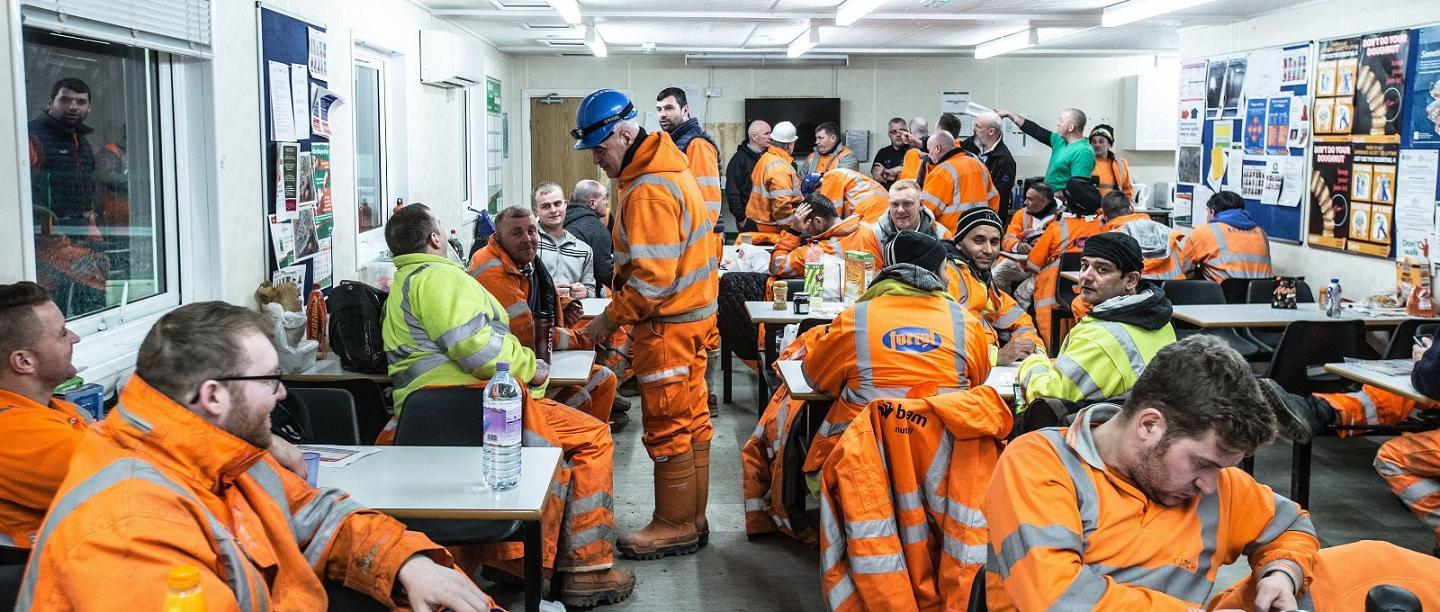

(C) EqualTimes
Last updated on September 20th, 2023 at 10:43 am
Coronavirus spreads exponentially in Qatar’s labor camps, CBS reported on May 15. The Gulf country recorded 32604 COVID-19 cases and 19 deaths, 1632 new cases just in the last 24 hours. Most of them are migrant workers in shared accommodations. Less than 10% of Qatar’s nearly 2.5 million inhabitants are Qatari nationals.
About 600,000 blue-collar workers, mostly young, single non-Qatari men, labor away to build Qatar’s legacy. In color-coded uniforms, the workers are bussed onto the construction sites in the morning. In the afternoon, the workers are delivered back to huge camps, built specifically to house them, on the outskirts of the capital, Doha. The labor camps have long been criticized by human rights groups for overcrowding and poor living conditions. Now, according to a health expert of the World Bank, due to those conditions, this is fertile ground for transmission of COVID-19.
The COVID-19 increase was relatively slow in the first few weeks. Then it started to rise almost exponentially from one week to another, Dr. Sameh El-Saharty, Lead Health Specialist at The World Bank, said recently at the Brookings Doha Center. “These transmissions were mainly among migrant workers, and for obvious reasons.” Even if authorities never admitted it, the new coronavirus is dramatically spreading through one of the labor camps to another.
With the announcement that Qatar will host the next World Cup 2022, international journalists reported that migrant workers in Doha industrial areas are governed by an exploitative labor system that can leave them vulnerable to forced labour by trapping them in employment situations in which their rights to fair wages, overtime pay, adequate housing, freedom of movement, and access to justice are at risk. These serious and systemic abuses of migrant workers’ rights in Qatar often stem from the still unrepealed kafala system, which ties migrant workers’ visas to their employer and severely restricts their ability to change employers.
Dozens of infrastructures are being built in Qatar, along with a world-class transportation facility that includes a 47-mile metro system and miles of brand-new roads. Most of these massive projects were scheduled to be finished in time for the 2022 Football World Cup. The biggest challenge was acquiring the manpower to build and oversee all the work. Qatar is heavily dependent on foreign workers, most of them are original from Pakistan and Nepal often live packed into camps in the desert from where they are taken to building sites. Despite NGO’s appeals, Qatar didn’t take any action to protect migrant workers health. Since first few cases of COVID-19 were confirmed in March, the numbers have mushroomed to almost 32,000 in less than two months with an exponentially spreading in the last seven days.
Former President Donald Trump is taking legal action to strike down one of the topics on the forgotten list of…
As U.S. retailers like Walmart and Costco pursue alternatives to Chinese and Bangladeshi suppliers due to rising tariffs, India's garment…
U.S. worker productivity declined for the first time in almost three years in the first quarter of 2025, in a…
According to the Ministry of Health, Labour and Welfare in March 2025, Japan's inflation adjusted real wages fell by 2.1%…
BluSmart Mobility, once viewed as India’s green ride-hailing alternative, ceased operations in April 2025 leaving nearly 10,000 drivers unemployed without…
The India-UK Free Trade Agreement (FTA), recently learnt, has attracted some attention for one of its benefits enabling Indian workers…
This website uses cookies.
Read More
View Comments
https://waterfallmagazine.com
Hey there, You have done an excellent job. I will certainly digg it and personally suggest to my friends.
I'm sure they will be benefited from this website.